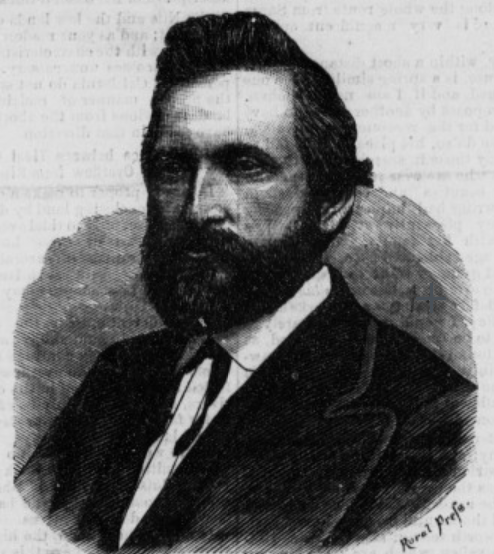James William Albert Wright
James William Albert Wright was born on July 28, 1834, in Columbus, Mississippi, to David Wright. His father was a Presbyterian minister who died around 1840. He worked in a cabinet shop while growing up, and he attended school in Mississippi and Alabama. He enrolled at Princeton University in 1855, and he graduated two years later.
He settled in Havana, Alabama, where he taught Latin, Greek, French, rhetoric, and mathematics. According to an early biographer, he “also devoted much of his leisure time to natural history and botany.” He married Margaret Tutwiler on August 2, 1859, and the couple apparently had no children.
When the Civil War broke out, he continued teaching for a year. Then, in May 1862, he received a commission as a captain in Company H of the 36th Alabama Infantry. The regiment took part in the Battle of Chickamauga and the Battle of Lookout Mountain. He eventually earned a promotion to major. He was wounded in the left thigh at Lookout Mountain in November 1863, and Union forces captured him soon afterward.
He was imprisoned at Camp Chase, Ohio. They transferred him to Fort Delaware in March 1864. He “Deserted en route,” reportedly making his way “to Canada, then Bermuda, and then home.” He rejoined his regiment around June 1864, and he remained in the army until the end of the war. He swore a parole on May 10, 1865.
He moved to Empire, California, around 1868, and he earned a living as a farmer. By 1870, he owned $1,000 of real estate and $1,000 of personal property. He supported the Grange movement in the early 1870s, and he attended the National Grange in Washington, D.C., in 1873. He travelled abroad 1876, and his passport described him as 5 feet, 5 ¾ inches tall, with brown hair and blue eyes. He eventually moved to Talladega, Alabama, and he served as principal of the Talladega Military Academy. He died of heart disease in Talladega on August 11, 1894.
Image: James W. A. Wright (Pacific Rural Press, 4 July 1874)
DATABASE CONTENT
| (3444) | Wright, James William Albert | 1834-07-28 | 1894-08-11 |
- Conflict Side: Confederacy
- Role: Soldier
- Rank in: Captain
- Rank out: Major
- Rank highest: Major
- Gender: Male
- Race: White
Documents - Records: 1
- (3847) [writer] ~ James W. A. Wright to Lucy (?), 9 March 1864
People - Records: 1
- (5380) (?), Lucy is the [cousin of] (3444) Wright, James William Albert
Places - Records: 2
Regiments - Records: 1
- (940) [officer] ~ 36th Alabama Infantry
SOURCES
1860, 1870, and 1880 United States Federal Censuses, available from Ancestry.com; Military Service Records of J. W. Albert Wright, available from Fold3.com; Alabama Marriage Index, 1800-1969, available from Ancestry.com; Confederate Officers Card Index, 1861-1865, available from Ancestry.com; Passport Applications, 1795-1925, available from Ancestry.com; Pacific Rural Press, 4 July 1874; Birmingham (AL) Post-Herald, 12 August 1894





